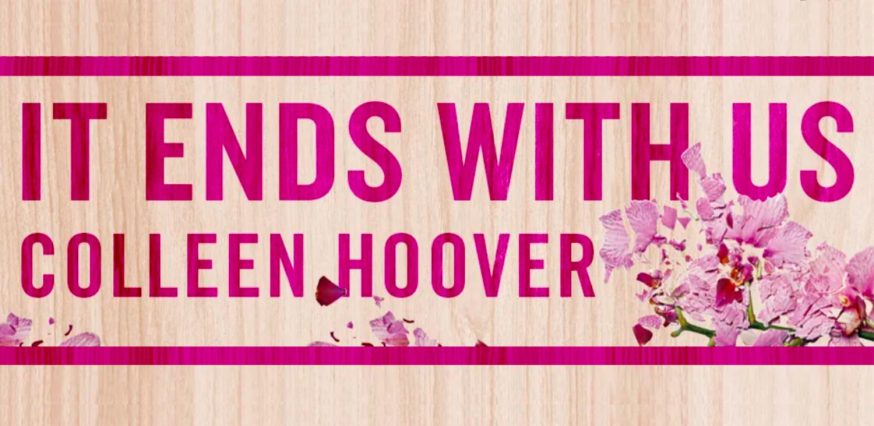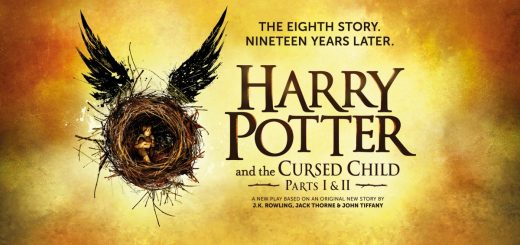‘It Ends With Us:’ a failed attempt at domestic violence awareness

*This review contains mentions of domestic violence. Please read at your own discretion.
BookTok’s controversial sensation “It Ends With Us” by Colleen Hoover recently got a new wave of attention following its cinematic release starring Blake Lively and Justin Baldoni. With a Rotten Tomatoes “Tomatometer” score of 58% and a 6.8/10 on IMDb, the movie has received incredibly mixed reviews.
“It Ends With Us” follows a young florist who witnessed her father’s domestic violence towards her mother throughout her childhood. Throughout the story, she enters a romantic relationship, and when she eventually begins to see parallels between her father’s abuse and her husband’s, she realizes she has to break free from the cycle.
This public reception seems to align with Hoover’s novel, which went viral on social media because of readers’ conflicting opinions. Those who enjoyed the novel showered it with praise for its heavy and inspirational themes. Goodreads user Aestas Book Blog said, “It Ends With Us is one of the most powerful books of 2016 and one of the most raw, honest, inspiring, and profoundly beautiful stories I’ve ever read.”
Conversely, those who criticize the novel believe that the book does not deliver on its promise of violence awareness, as Goodreads user olivia explains “…I appreciate the effort that was made to highlight how trauma distorts and lingers, but I don’t believe this captured the severity or nuance that a topic this heavy deserves in fictionalized work.”
Most of the criticism surrounding the story seems to center around one key question: Did Hoover succeed in handling the sensitive themes of generational domestic violence in her novel, or did she fall short on delivery?
By adding random bits of unnecessary humor and creating an abusive character with a backstory that is presented in a way that seems to almost “excuse” his actions, Hoover fails to convey the appropriate message throughout her story.
There are many seemingly small examples in which Hoover seems to lean into haphazardly thrown-in humor, such as the fact that the main character is a florist named Lily Blossom Bloom, or when Ryle, the main love interest, hangs up a photo of the Lily in his bedroom after meeting her once. This recurring theme sets a tone for the book that strays heavily from the story’s overarching message and lessens the impact of the essential themes that Hoover is supposedly trying to convey.
Possibly the most infamous critique of the “It Ends With Us” story is the canon existence of Ellen DeGeneres and Lily’s obsession with her. This critique became so widely known that the subplot was entirely removed from the film adaptation. Throughout the book, the main character’s past is explained almost exclusively through letters she had written (but never sent) to Ellen. This concept is one of the most glaring examples of strange plot devices that were added to the story without much explanation or purpose, which taints the audience’s authentic read on Lily.
Not only does Hoover overuse random humor, which lessens the impact of her attempted message against domestic abuse, but she also creates Ryle with an inconceivable backstory, which seems to almost justify his actions, without fully expanding on the fact that his actions can’t be excused.
Upon being called out on his actions by Lily, Ryle explains that he has violent episodes due to a traumatic experience from his childhood, to which Lily is overwhelmed with guilt and pity and feels as though she should give him another chance.
According to an article published by the One Love Foundation, an organization dedicated to educating youth on the dangers of abusive relationships, many people stay in abusive relationships in the hopes something will change. “They might also believe their partner’s behavior is due to tough times or feel as though they can change their partner if they are a better partner themselves,” This idea of a non-abusive person feeling empathy for their abuser ultimately leads them back into a relationship with them is one of the most damaging aspects of domestic violence. Hoover does not break this trope and instead seems to encourage it.
Because of this, by giving Ryle a tragic backstory, Hoover is perpetuating this stereotype of abusers having a “reason” for their damaging behavior that is outside of their control, which can be harmful to those trying to break free from a cycle of abuse and comes to terms with the fact that their partner’s actions are not warranted or acceptable.
By using absurd humor and not expanding on the impact of Ryle’s trauma, Hoover has ineffectively portrayed the importance of ending domestic violence.
In order to depict this message more effectively, she should have treated her story with the seriousness it deserves instead of with the humorous undertones she included. When it comes to Ryle’s character, she should have definitely included his trauma, since it is common for abusers to have emotional damage from their past, but she should have gone on to explain why his past does not define him and therefore does not rule over his actions. By doing this, it would become more clear to the reader that if someone is abusive, it is not because of their past, but because of decisions they are making in the moment.
If you or someone you know is experiencing domestic violence, you are not alone. Please utilize these resources to get help.
https://www.thehotline.org/ (National Domestic Violence Hotline)
https://wingsprogram.com/ways-to-help/ (WINGS)




I think this is a great analysis of why It Ends With Us failed at it’s message. Something that was missed here was the fact that Lily does end up perpetuating the cycle of abuse after leaving Ryle by giving him partial custody of their daughter. Lily’s own father only ever abused Lily’s mother, and Lily assumes the same for Ryle, believing that like her father, Ryle would never harm his daughter. Hoover lessens the impact of her message further by forgetting that not all abusers are like, and by giving Ryle custody the cycle of abuse could still continue.